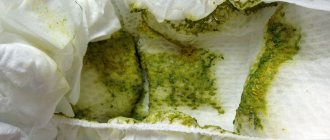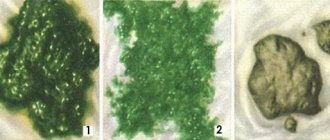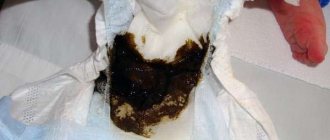When orange urine comes out of the urination canal, such a symptom can be either a physiological ingestion of coloring products and medications, or it can pose a hidden threat to human health - the development of inflammatory diseases of the genitourinary organs.
“What factors can cause urine to turn bright orange?” Read more about this below.
Main physiological reasons
A huge number of different circumstances can cause a change in the color of discharge. The most common reason for urine with an orange tint is insufficient intake of water into the body. Even slight dehydration leads to an increase in the concentration of urine - it is as a result of this disorder that it acquires a golden color.
The process of formation of the color of this biological fluid is also influenced by other factors - the use of special foods or medications, as well as some pathological conditions. We propose to consider each of them separately.
What food can turn urine reddish?
Orange urine in patients is usually excreted after eating foods that contain a fairly large amount of coloring pigments. In addition to carbohydrates, microelements and other natural ingredients, healthy berries, vegetables or fruits also contain vitamins. It is these active compounds that give these products their special flavor. In addition to vitamins, such food also includes natural dyes.
In our case, the consumption of fresh vegetables or fruits, which contain a lot of coloring pigment called carotene, can provoke the release of dark orange urine. Increased levels of this substance are found in foods that are yellow or reddish in color.
The secreted liquid may turn orange after consumption:
- beets;
- black and red currants;
- pumpkins;
- any citrus fruits;
- persimmons;
- raspberries;
- rosehip;
- carrots;
- various greens (celery, spinach and parsley);
- sea buckthorn.
In this case, we mean not only a one-time intake of a small amount of these products, but also their abuse. Therefore, if a girl or woman follows a carrot diet, she will naturally experience not only orange-colored urine, but also yellowness of the plantar surface of her feet and palms. Such a violation is temporary - the shade of the patient’s urine and skin will return to normal within 1-2 days.
Dark urine with an orange color often appears in people who eat a lot of sweets, because excessive consumption of sugar and products containing it in large quantities can affect the color of the discharge.
Attention! If a change in the nature of urine is observed as a result of eating natural food, then this phenomenon is considered normal and does not cause harm to the human body. But repeated discharge of orange urine, which appears due to the consumption of various products with a high content of coloring substances of chemical origin, is a dangerous sign. To get rid of this problem, you should at least temporarily give up harmful drinks, sweets or other products with unnatural ingredients.
Taking medications and changing the color of urine
Sometimes the secreted liquid takes on an orange color as a result of the effects of certain groups of drugs on the human body. Many of them contain coloring compounds, which subsequently affect the color of urine. The following medications can cause urine to turn orange:
- Medicines used to treat various oncological diseases.
- Non-narcotic analgesics – Phenazopyridine.
- Drugs that have an antiplatelet (reduce thrombus formation) effect - Warfarin.
- Drugs with a laxative effect, the main active component of which is phenolphthalein.
- Medicines used as part of complex therapy for tuberculosis – Rifampicin.
Dehydration
In the presence of dehydration - a lack of fluid in the patient's body, the discharge changes its color due to an increase in its concentration. Normal urine should have a light yellow tint, which is due to the optimal amount of coloring pigment it contains. But with a decrease in the liquid component, the specific content of these substances in the urine increases several times. This is why biological fluid changes color, becomes brighter or too dark. Dehydration develops for two main reasons - excessively rapid loss of water or insufficient intake of it into the body.
Urine color and nutrition: is there a connection?
Lemon-colored urine has a direct connection with the foods that the child eats. If we are talking about infants, then in an older child the bright yellow color of urine depends to a large extent on the foods that he directly consumes.
At the moment, most products contain artificial colors (soda, marmalade, candies). Their consumption can turn urine a bright yellow color.
Also, many vegetables and fruits have the same effect. Among them are citrus fruits, pumpkin, carrots, and currants. The list of these food products contains natural pigment substances. It is for this reason that the doctor always asks what the child ate the day before?
Orange discharge is a sign of pathology
If the urine retains a red tint for quite a long time, and this phenomenon is not associated with taking the products and medications described above, such a violation only indicates that the patient has a serious illness. The release of urine of a rich orange color is possible with the following ailments:
- Purulent inflammation of the calyces and pelvis of the kidneys (pyelonephritis).
- The presence of stones in the urethra with urolithiasis.
- Glomerulonephritis.
- Various degrees of dehydration (occurs due to intoxication, intestinal infections, high body temperature and other severe conditions).
- Pathologies of the urinary system that are inflammatory in nature (urethritis, cystitis, nephritis).
Orange urine can be produced due to a variety of diseases of the kidneys and urination. In such a situation, the patient exhibits additional clinical symptoms in the form of too frequent and painful urination, poor health, and the appearance of a foul odor from the urine. Also, with these disorders, the patient often finds it difficult to urinate, and he experiences discomfort in the lumbar area.
Good to know! Passing orange colored urine in the morning is normal and should not bother you. This change occurs as a result of the fact that during sleep the production of vasopressin in our body increases. This hormonal substance has pronounced antidiuretic properties and reduces the filtration of excess water in the kidneys.
Features of this disorder in women and men
The orange color of urine does not always indicate a lack of fluid in the human body. The reasons for the release of urine with a bright yellow and rich color in representatives of different sexes are not the same.
Orange-colored urine is released in women during infectious diseases. Thus, the usual color of this biological fluid often changes with cystitis, inflammation of the urethra and kidneys. Due to its anatomical structure, the body of representatives of the fairer sex is much more susceptible to the effects of various pathogenic pathogens. The result of the inflammatory process in these organs is the darkening of the secretions and the appearance of sediment in them.
A characteristic change in the color of urine in women can also be observed during pregnancy. During this period, the expectant mother may experience severe complications such as gestosis. A similar pathology occurs either in the first trimester of pregnancy or at a later stage. In both cases, orange urine begins to be released as a result of rapid dehydration. In early gestosis, water loss is associated with frequent vomiting; in late gestosis, it is associated with the formation of severe swelling throughout the body.
Attention! Dehydration in pregnant women is a very dangerous sign. All patients with suspected gestosis must be hospitalized, since this disorder can threaten not only the life of the baby, but also the health of the expectant mother herself. Therefore, if golden-yellow urine is constantly released during pregnancy, immediately consult a doctor for advice.
Why is orange-colored urine produced in men? This phenomenon is not uncommon among the stronger sex. The color of their discharge changes for natural reasons during active work and when engaging in strenuous sports. Pathological factors influencing the character of male urine are urolithiasis and prostate diseases. The problem becomes dangerous if the release of orange-colored fluid accompanies the patient for too long - from 1-2 weeks to 2 months. However, other symptomatic signs of the disease may be absent.
Also, golden-colored urine appears in men after taking large doses of alcoholic beverages. Alcoholism itself causes severe kidney damage in the form of chronic failure of their functioning. Therefore, the release of orange discharge in persons who have been abusing alcohol for a long time often indicates nephrononecrosis - the gradual death of kidney tissue. The color of the liquid will be restored after some time, provided that you completely stop drinking alcohol.
What to do?
First of all, if the urine has become too yellow in color, you need to monitor the child’s nutrition, if we are talking about children who eat anything other than milk (breast or artificial). You should be on the lookout for foods and drinks that may change the color of your urine. In addition, it is worth remembering whether the child has recently taken medications or vitamins.
It is also necessary to monitor his drinking regime, here we are talking about infants. According to WHO recommendations, a breastfed baby does not need to be given extra water, but an “artificial baby” should be given water between meals without fail. For children from one to three years old, the water consumption rate is calculated using the formula 50 ml per kilogram of the child’s weight.
Children from three to seven years of age should receive from 1.3 liters to 1.7 liters, and from the age of seven from 1.7 liters to 2.5 liters per day. Of course, this scheme is relative. It is necessary to take into account the individual characteristics of each child. Preference in terms of drinking should be given to clean water, fruit drinks, and herbal teas. It is recommended to minimize the consumption of carbonated drinks, juices and nectars with added sugar.
You should give your baby a drink according to his wishes; if he doesn’t want to drink, then you shouldn’t force him
If all of the above factors are excluded, and the urine is still bright yellow, then you should consult a doctor. He will definitely conduct a detailed survey regarding the child’s lifestyle and nutrition. If necessary, prescribe laboratory and instrumental studies. The most common among them is a general urine test. As a rule, it is given twice. Ultrasound examination of the pelvic and abdominal organs is also used.
There are situations in which you should not hesitate to visit a doctor. If a child’s color changes in biological fluid are accompanied by cloudiness and an unpleasant odor, temperature, bloody impurities, yellowness of the skin, or pain, then you should immediately seek medical help.
Orange tint of urine in a child
The color of discharge in young patients changes somewhat under the influence of physiological factors - hormonal instability of the body, changes in diet, and the gradual development of the urinary tract.
In newborns, the uncharacteristic orange color of the liquid occurs as a result of an increase in the concentration of urea, since it is its salts that give the urine the corresponding shade. The appearance of rich yellowish urine in a child during the first 7-14 days indicates the beginning of normal functioning of the urethra.
In the future, as the baby grows up, the color of his discharge will lighten. As children get older, they begin to drink more fluid in the form of milk or water, and the performance of their urinary system stabilizes. But orange urine in a baby can also indicate a pathological condition - dehydration with severe vomiting or diarrhea, some diseases of the urinary tract.











